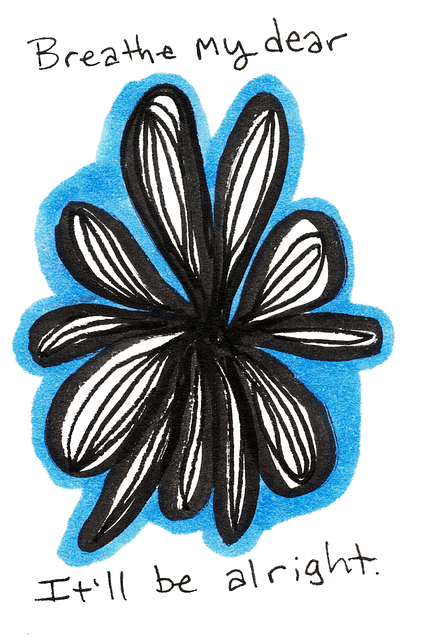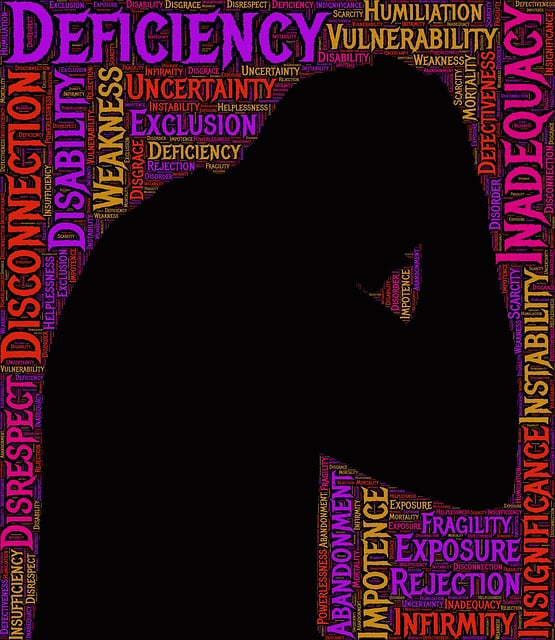Mental wellness groups, facilitated by experts like Parker Eating Disorders Therapy, offer crucial resources for individuals facing challenges. The Parker Approach creates safe spaces where members share experiences, learn coping strategies based on Mind Over Matter principles, and build resilience. Facilitators use techniques like active listening and structured discussions to foster open communication and emotional well-being, balancing community building with managing power dynamics. Effective facilitation contributes to personal growth, positive mental health outcomes, and a supportive group environment enhanced by mindfulness practices such as meditation.
“Uncover powerful strategies for mental wellness group facilitation with this comprehensive guide. We explore the foundational principles of the Parker Approach, a pioneering method in eating disorders therapy, as a framework for successful group dynamics. Learn how group leaders can navigate complex interactions and foster supportive environments. From understanding group behavior to mastering effective communication, this article equips professionals with tools to enhance participation and promote healing. Discover techniques that transform mental wellness groups into thriving communities of support.”
- Understanding Mental Wellness Groups: The Parker Approach
- Group Dynamics and Facilitation Strategies
- Effective Communication Techniques for Group Leaders
Understanding Mental Wellness Groups: The Parker Approach

Mental wellness groups play a pivotal role in fostering community and support for individuals grappling with various challenges. The Parker Approach, pioneered by experts in eating disorders therapy like Dr. Parker, offers a structured yet adaptable framework for facilitating such groups. This method emphasizes creating a safe, non-judgmental space where members can openly discuss their experiences, share coping strategies, and offer mutual support. By integrating Mind Over Matter principles, the Parker Eating Disorders Therapy approach encourages participants to develop resilience, challenge negative thought patterns, and cultivate a positive self-image.
Public Awareness Campaigns Development has highlighted the growing importance of such group settings in promoting mental wellness. The Parker Approach caters to this need by providing tools for facilitators to navigate complex emotional dynamics, facilitate productive conversations, and track individual progress. Through these techniques, mental wellness groups become powerful vehicles for personal growth, recovery, and community building.
Group Dynamics and Facilitation Strategies

In a therapeutic setting, particularly within mental wellness groups like those facilitated by Parker Eating Disorders Therapy, understanding group dynamics is paramount. Groups offer a unique environment where individuals can share experiences, gain support, and learn from one another. Facilitators play a crucial role in navigating these dynamics, ensuring every member feels valued and safe to express themselves. Strategies such as active listening, reflective listening, and structured discussions foster an inclusive atmosphere, encouraging open communication and emotional well-being promotion techniques.
Effective facilitation involves balancing different approaches based on the group’s needs. For instance, fostering a sense of community through icebreakers can help build trust and reduce social anxiety. Conversely, addressing potential power dynamics and promoting compassion cultivation practices are essential for risk management planning in mental health professionals. These strategies collectively contribute to creating a supportive space that facilitates personal growth and positive mental health outcomes.
Effective Communication Techniques for Group Leaders

Effective communication is a cornerstone for group facilitators, especially those specializing in mental wellness. Group leaders must cultivate an open and safe space where every member feels heard and respected. Active listening, a cornerstone technique from Parker Eating Disorders Therapy, involves fully concentrating on a speaker’s words and non-verbal cues, ensuring understanding, and responding thoughtfully. This skill fosters trust and encourages members to share their experiences candidly, which is vital for building camaraderie and promoting emotional intelligence.
Moreover, incorporating practices like Mindfulness Meditation and Trauma Support Services can enhance communication dynamics. Group leaders can guide sessions where participants learn to stay present and non-judgmentally aware of each other’s thoughts and feelings. These techniques not only support individuals in processing their experiences but also improve overall group communication, creating a more cohesive and supportive environment, similar to the benefits observed in Trauma Support Services.
Mental wellness group facilitation is a powerful tool, as evidenced by the Parker Approach in treating eating disorders. By understanding group dynamics and employing effective communication strategies, facilitators can create a supportive environment that enhances healing. The techniques discussed, including active listening and structured activities, enable leaders to navigate complex emotions and foster meaningful connections among group members. Incorporating these practices can revolutionize mental health support, making it more accessible and impactful for individuals navigating challenges like eating disorders.














